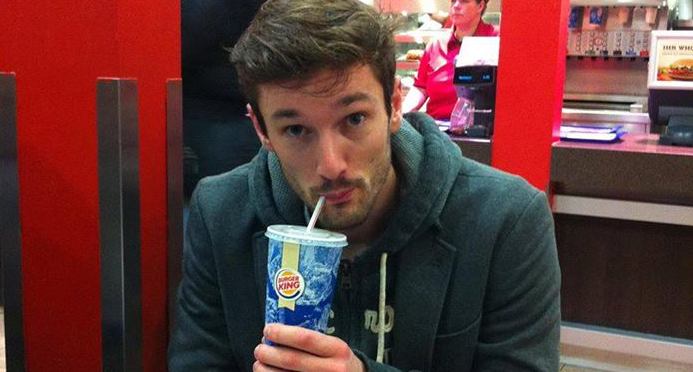Interesting…
Carbs & Caffeine are out weakness!
8 Foods and Ingredients Athletes Should Avoid or Limit from active.com:
LIMIT SPORTS DRINKS
Unless you’re working out or running for more than an hour, it simply isn’t necessary to consume sports drinks, says Barbara Lewin, RD, LD, sports nutritionist and owner of Sports-Nutritionist.com. Drinking water, green tea or juice will effectively keep you hydrated.
AVOID SODA
Soda tops the list of high-calorie, nutrient-empty foods. With almost 10 teaspoons of sugar per 12-ounce can, soda drinkers raise their caloric intake and may lose their appetite for healthier foods because they’re full. Soda, especially dark-colored, carbonated beverages such as cola, which contain phosphorus, contribute to calcium depletion, cautions Lewin.
And although diet soda doesn’t contain actual sugar, studies have shown artificially sweetened products don’t aid in weight loss and contain ingredients that aren’t good for the body. For carbonated refreshment, try club soda garnished with citrus, or juice spritzers made with equal parts juice and club soda.
AVOID PROTEIN BARS AND ENERGY BARS
Protein bars and energy bars are quick, convenient sources of nutrients, but Lewin discourages clients from overusing them: “Most are highly processed and can’t compare to eating a piece of fruit and a hand full of nuts.” For athletes who consume bars with the intent of boosting their protein intake, Lewin notes that too much protein in the diet can contribute to bone loss and overtax the kidneys. Many protein bars are also high in saturated fat which can contribute to heart disease, diabetes and obesity.
AVOID SATURATED AND TRANS FATS
Foods containing hydrogenated vegetable oils and trans fats raise LDL cholesterol (i.e., bad cholesterol), lower good HDL cholesterol and increase the risk of heart disease, even in well-conditioned athletes. Instead, athletes should choose healthy fats such as nuts, seeds, avocados, seafood, and olive and peanut oil.
LIMIT CARBOHYDRATES
Runners are notorious for carb-loading before a big race, but Nancy Clark, MS, RD, CSSD, author of Nancy Clark’s Sports Nutrition Guidebook and owner of a private sports nutrition practice in Boston, warns against digging into a pan of lasagna.
“The biggest mistake people make is thinking they are carb loading when they are really fat loading,” Clark said. Keep portion sizes reasonable or risk feeling weighed down. High-fat, hard-to-digest foods can also upset the digestive track.
LIMIT FIBER
Although a heart-healthy diet includes high-fiber foods, too much fiber can trip up athletes. Consumed pre-event, high-fiber foods may cause loose stool or intestinal problems. Sumbal recommends that athletes avoid complex starchy foods and instead opt for whole, unprocessed foods such as oatmeal, raisins or peanut butter.
LIMIT CAFFEINE
Some research claims that small amounts of caffeine can improve performance. Black, however, encourages athletes to limit their intake because of its dehydrating effects. Avoid caffeine-fortified drinks, and limit energy drinks, which may contain but not list natural sources of caffeine. For comparison, nutritionists recommend consuming no more than 300 milligrams per day, which would be the equivalent of about seven and a half cola drinks.
AVOID ALCOHOL
Over-indulging on booze will continue to impact the body’s cells for about 72 hours. “If you have a hangover, that’s how your cells feel three days later,” Black says. The detrimental effects of alcohol include slowed reaction times, decreased performance and increased risk of injury such as muscle tears or heat stroke due to dehydration.
The key for a healthy diet while training is to limit or avoid foods and ingredients that interfere with the body’s nutritional and performance requirements. That’s not to say athletes can’t occasionally splurge on beer and pizza.
“If you eat well most of the time you don’t have to worry about the rest of the time,” Sumbal says. “It’s OK to chow down on chocolate-chip pancakes with whipped cream as a treat after your hardest monthly bike ride or grab the occasional take-out pizza after a long run. But it’s important not to make these choices habitual. Routinely choosing such post-training ‘rewards’ puts you in danger of missing out on key vitamins and minerals needed to support the metabolic processes required in training.”
Here’s a pic of French player Julien Lyneel enjoying his cheat day with a Burger King Meal…



One Comment
Leave a Reply